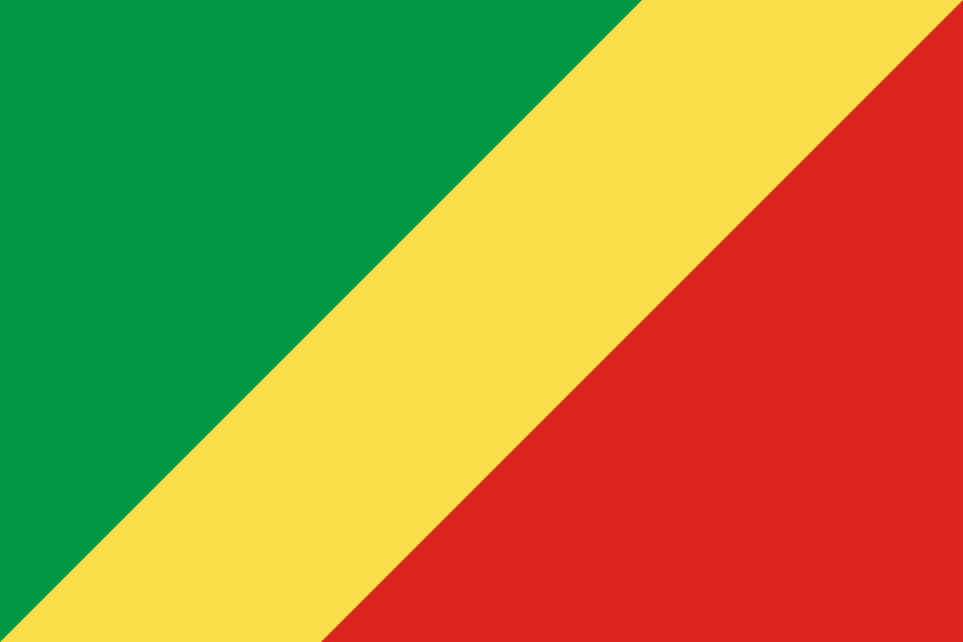The Republic of the Congo
Background
In 2015, a controversial revision of the Constitution, which was passed through a referendum, abolished both the 70-year age limit on and the two-term limit for presidential candidates and allowed the 71-year-old Denis Sossou Nguesso to run for a third term. After Denis Sassou Nguesso’s re-election in 2016, violence broke out in the southern districts of the capital and Pool, which are considered to be opposition strongholds. UN High Commissioner for Human Rights expressed concerns about operations by the state’s security agencies in the affected areas and reports of mass arrests, torture, killings and displacements. In late December 2017, the Government and the rebel group signed a peace agreement to end the conflict. Despite constitutional provisions on separation of powers, the president dominate other branches of the government and the media system. The legislative bodies and courts are unable to exercise control powers over actions of the government.
Treaty ratification Process
The Constitution of Congo (arts. 175, 117,118,122,123) provides that the President of the Republic negotiates, signs, and ratifies treaties and international agreements. In some instances, however, ratification may occur only after approval of the Parliament, such as where a treaty relates to international organizations. Under the Constitution, a specific law determines agreements exempted from the ratification procedure. The Constitutional Court of Congo is responsible for ensuring that treaties conform with the country’s Constitution. If the Constitutional Court declares that a particular international agreement contains a provision contrary to the Constitution, ratification may only occur after revision of the Constitution. International instruments duly ratified and published become part of Congo’s domestic law, as Congo is a monist country. In the day to day practice however, it is the Minister of foreign Affairs that performs most of the tasks. The process goes as following: the Ministry of Foreign Affairs initiate a draft law authorizing the ratification or the adhesion to the treaty; he requests an advise from the Supreme Court on the constitutionality of the draft law; submits the draft law to the Council of Ministers for approval; transmits the draft law to Parliament for consideration and approval; follows up the promulgation of the law by the President following its adoption by Parliament; prepares an Instrument of Ratification for signature by the President; and notifies and deposits the Instrument of Ratification to the relevant treaty depositary.
State of legislation on International and transnational crimes
Congo enacted a legislation on core international crimes, including genocide, war crimes and crimes against humanity (but not the crime of aggression), in 1998. The definitions of the crimes are similar to those in the Rome Statute, but not identical. In addition, the law provides that the death penalty may be imposed as a sentence for these crimes. Congo subsequently ratified the Rome Statute on May 3, 2004. The current Constitution stipulates that war crimes, crimes against humanity, the crime of genocide, are punished in conditions determined by law. Despite these initiatives towards the realization of international justice, the Congo entered into agreement with the United States of America prohibiting the surrender of persons to the International Criminal Court on June 2, 2004. Also, article 10 of the Constitution prohibits the extradition or surrender of a Congolese citizen to any “foreign power or organization” for any reason whatsoever except in the case of loss or deprivation of nationality. Also, for crimes committed before December 1999, Congo enacted an amnesty law for war crimes committed during the civil wars of 1993-1994, 1997 and 1998-1999.
Human Rights treaty signing and ratification trends
Congo has signed and/or ratified almost all of the key AU human rights treaties and crime-based treaties except the African Charter on Democracy, Elections and Governance. An analysis of the time between signature and ratification of AU treaties indicates an average of 66 months.[1] The object of the treaty-for example whether it establishes a judicial body or is about general human rights-does not make any difference regarding this average time. At the UN level, Congo is a party to most of the core human rights treaties. However, it is reluctant to sign optional protocols – such as acceptance of individual complaints or inquiry procedures – that place specific obligations on the state. The average time between signature and ratification for UN treaties is 26 months.[2]
AU Judicial bodies membership
[1] See Annex: Treaty signing and ratification trends, calculation chart, Congo Brazzaville.
[2] See Annex: Treaty signing and ratification trends, calculation chart, Congo Brazzaville.

